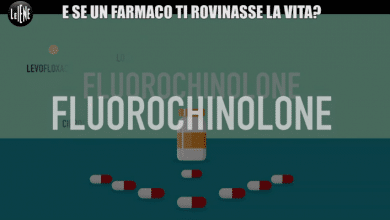
The national secretary of Filctem CGIL, Marco Falcinelli, talks about the employment crisis that is affecting above all scientific representatives and complains of difficulties in communicating with Farmindustria. In view of the opening of a table with Assogenerici to explore the possibility of transferring human resources that are currently inconsistent. The Italian pharmaceutical industry employs 63,500 people. In the last seven years it has sent home 13,400 workers (-15%), 70% of whom are scientific representatives, particularly those engaged in the primary care sector. The raw data is contained in a document produced last December by Filctem CGIL, the trade union of the chemical-pharmaceutical sector, and exceeds by about a thousand units that reported by Farmindustria for the same period.
Since we are dealing with people, families and not (just) numbers, the detail is not irrelevant: possible misunderstandings aside, this reflects a real problem of dialogue between the industrial association and the trade union, as noted by Marco Falcinelli, national secretary of the Filctem Cgil. “The associative relationship within Farmindustria is often complicated. Depending on whether the interested companies are Italian, European or American, it happens that they first communicate their desire to restructure to us. Often Farmindustría knows from the union how many redundancies there are…”.
A premise is a must. “The pharmaceutical sector – says Falcinelli – is not exactly in crisis. There isn't a company that has financial statements in the red. Rather, there is a gigantic reorganization problem following the change in the industrial model”.
Falcinelli refers to the fact that, up until the early 1990s, companies assumed important shares of informants and followed up on aggressive market policies. “Then the expired patents, the genericization of substances, the research activity that gets into difficulty… I have a figure in mind: in the early 1990s, around 200 new molecules were identified every season, in 2012 there were about twenty (27 those approved by the FDA in 2013, ed)”. What about generic companies? Do they hire? What opportunities do they offer?
“We recently started talking to Assogenerici. At the moment the companies are doing well but they certainly cannot compensate for what is happening in the world of ethical drugs. There has been no transfer of jobs, not even the i% of those that have been lost” concludes Falcinelli.
If the reasons justifying the employment crisis are substantially shared between industrialists and social forces, obviously the expulsive strategies tout court cannot be, which, it goes without saying, a good system of relations would be able to mitigate. In Italy this system is made up of lights and shadows, according to Falcinelli: “Over time we have managed to build such an important relationship that the chemical-pharmaceutical contract is regularly renewed every two years with Federchimica and Farmindustria. However, the relationship model with Farmindustria suffers from some more difficulties.
They associate all but represent few. Companies tend to go it alone and recognize little of themselves in the organization which must take into account the interests of American, Italian and European groups.
Within this division, companies struggle to find a common line, also due to the effect of their respective product portfolios and respective market situations. Of course, fairness and friendliness prevail between us and them. However, if we ask Federchimica to intervene and take an active part in relation to an associate, the operation is simpler. Instead, the pharma companies go their own way”.
As mentioned by Falcinelli, the difficulty of representation also depends on the provenance. “From the Americans we get pre-packaged decisions with practically zero bargaining margins. It's different with the Europeans: for example, together with Merck Serono we managed complicated stages". With the Italians it goes like this and like this. “Menarini is an owner-owned company, but in recent months it has shown significant attention to social aspects. With Sigma Tau, however, we have come to a clash: their reorganization process is in the hands of subjects outside the company who have had no relationship with the history of the group. It's hard to reason with them."
Even in times of crisis, some hope always lights up, as evidenced by the investments made recently in Italy, also documented in these pages of AboutPharma. What does the union do when it discovers that the industrial commitment does not generate new employment but rather provides for a redundancy of workers?
“Unfortunately – continues Falcinelli – things travel in a separate and often inversely proportional way. Those who inject capital into companies, whether they are research, financial or big pharma subjects, often condition the investment on reorganizations and restructurings which involve, if not halving, certainly the significant reduction of the workforce.
The union is always between a rock and a hard place: on the one hand we welcome investors who put capital, on the other we are forced to discuss cuts, trying to prevent the investor from running away. Our attitude is pragmatic.
We try to limit the damage as much as possible from an employment point of view and not to discourage those who come to invest in our country. A rather rare event: apart from a few cases, we are not an attractive country”.
With respect to capital flight and manufacturing relocations, one of the major reasons, historically, refers to the high cost of labor in Italy. “That's not the deterrent. The main problem - claims the secretary of Filctem - is the absence of an overall design of industrial policy, which concerns all sectors and also the chemical-pharmaceutical one. Unfortunately, the latter was considered a protected sector for many years since 1'80-85% of production was purchased by the NHS. So from the business point of view it is neglected and the need to compete. Let's add that in the last twenty years, nine times out of ten, health care spending reduction policies have only affected the pharmaceutical sector, according to a logic that we do not share and which makes industry development policy subordinate to the country's budget reasons”.
The union also recognizes other elements of the system that slow down the arrival of capital and put the pharmaceutical industry in difficulty. “In Italy the bureaucracy is hostile. To establish a chemical plant - says Falcinelli - it takes from twelve months to five years. In Germany, authorizations are obtained in two months and production starts in six months. I don't know an entrepreneur who is willing to hold investments for millions of euros for five years, with the risk that the project will then become obsolete and it no longer makes sense to complete it".
Another issue (heavier for chemistry than for pharmaceuticals) concerns the cost of energy. "which is 28 to 32% higher than in other countries." Another scourge: the public administration that doesn't pay. “In our country there are regions that pay back in 900 days! The companies supply medicines to hospitals and pharmacies, after which if they sell more than what they have agreed with Aifa, the law provides for reimbursement by the supply chain (companies, wholesalers) which, however, sees the money after two years ".
Stephen DiMarch sdimarzio@aboutpharma.com
14/02/2014 – Page 40/41- Aboutpharma Month 13,400 jobs lost in 7 years





